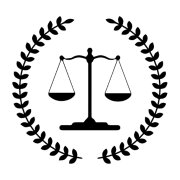Best Housing, Construction & Development Lawyers in Senegal
Share your needs with us, get contacted by law firms.
Free. Takes 2 min.
Free Guide to Hiring a Real Estate Lawyer
Or refine your search by selecting a city:
List of the best lawyers in Senegal
About Housing, Construction & Development Law in Senegal:
Housing, construction, and development play a critical role in Senegal's economy and infrastructure. The government has implemented laws and regulations to ensure safe and sustainable development in these sectors. Legal issues related to property ownership, construction permits, land use, and housing standards are commonly dealt with by legal professionals specializing in Housing, Construction & Development Law.
Why You May Need a Lawyer:
You may need a lawyer specializing in Housing, Construction & Development Law in Senegal for various reasons, such as resolving property disputes, ensuring compliance with laws and regulations, drafting contracts, obtaining building permits, or seeking legal advice on property transactions. A lawyer can help navigate complex legal issues and protect your rights in these sectors.
Local Laws Overview:
In Senegal, key laws and regulations pertaining to Housing, Construction & Development include the Urban Planning Code, the Construction Code, the Land Code, and various laws related to property rights and real estate transactions. These laws govern aspects such as land tenure, building standards, zoning regulations, and property rights. It is essential to seek legal advice to understand and comply with these regulations.
Frequently Asked Questions:
1. What is the process for obtaining a building permit in Senegal?
The process for obtaining a building permit in Senegal involves submitting an application to the relevant municipal or regional authorities, providing detailed building plans, and meeting specific requirements outlined in the Construction Code.
2. What are the rights of tenants and landlords in Senegal?
Tenants and landlords in Senegal are governed by the Tenancy Law, which outlines the rights and obligations of both parties regarding rent, repairs, eviction, and other tenancy-related issues.
3. How can I resolve a property dispute in Senegal?
To resolve a property dispute in Senegal, you can seek legal assistance to initiate mediation, arbitration, or litigation through the appropriate courts or authorities. Legal professionals can help protect your interests and ensure a fair resolution.
4. What are the legal requirements for land acquisition in Senegal?
Land acquisition in Senegal is regulated by the Land Code, which sets out the procedures for acquiring, transferring, and registering land ownership. Compliance with these legal requirements is crucial to avoid potential disputes or legal challenges.
5. Are there specific regulations for affordable housing projects in Senegal?
Yes, Senegal has implemented regulations and incentives to promote affordable housing projects, including tax breaks, subsidies, and financing options for developers and investors. Legal advice can help navigate these opportunities and requirements.
6. Can I appeal a decision by the local planning authorities in Senegal?
Yes, you can appeal a decision by the local planning authorities regarding building permits, zoning regulations, or land use restrictions through the relevant administrative or judicial channels. Legal representation can strengthen your case during the appeals process.
7. What are the penalties for non-compliance with construction regulations in Senegal?
Non-compliance with construction regulations in Senegal can result in fines, sanctions, or legal action by the authorities. It is essential to ensure compliance with the Construction Code and other relevant laws to avoid penalties and legal consequences.
8. How can I protect my rights as a property owner in Senegal?
You can protect your rights as a property owner in Senegal by registering your property, drafting clear and enforceable contracts, conducting due diligence before property transactions, and seeking legal advice to address any legal issues or disputes that may arise.
9. Are there special considerations for foreign investors in the housing and construction sector in Senegal?
Foreign investors in the housing and construction sector in Senegal may need to comply with specific regulations, restrictions, or incentives for foreign investment. Legal advice tailored to foreign investors can help navigate these considerations and maximize investment opportunities.
10. How can I ensure compliance with environmental regulations in construction projects in Senegal?
To ensure compliance with environmental regulations in construction projects in Senegal, you should conduct environmental impact assessments, obtain permits from the relevant authorities, mitigate potential environmental risks, and implement sustainable practices. Legal guidance can help address environmental compliance issues and minimize legal risks.
Additional Resources:
For further assistance and information on Housing, Construction & Development Law in Senegal, you can contact the Ministry of Urban Development and Housing, the National Agency for Territorial Development, or legal organizations such as the Senegalese Bar Association. These resources can provide valuable guidance and support for your legal needs in these sectors.
Next Steps:
If you require legal assistance in Housing, Construction & Development Law in Senegal, it is advisable to seek advice from a qualified lawyer with expertise in these areas. Consider consulting with a legal professional to assess your specific situation, explore available options, and protect your rights in compliance with local laws and regulations.
Lawzana helps you find the best lawyers and law firms in Senegal through a curated and pre-screened list of qualified legal professionals. Our platform offers rankings and detailed profiles of attorneys and law firms, allowing you to compare based on practice areas, including Housing, Construction & Development, experience, and client feedback.
Each profile includes a description of the firm's areas of practice, client reviews, team members and partners, year of establishment, spoken languages, office locations, contact information, social media presence, and any published articles or resources. Most firms on our platform speak English and are experienced in both local and international legal matters.
Get a quote from top-rated law firms in Senegal — quickly, securely, and without unnecessary hassle.
Disclaimer:
The information provided on this page is for general informational purposes only and does not constitute legal advice. While we strive to ensure the accuracy and relevance of the content, legal information may change over time, and interpretations of the law can vary. You should always consult with a qualified legal professional for advice specific to your situation.
We disclaim all liability for actions taken or not taken based on the content of this page. If you believe any information is incorrect or outdated, please contact us, and we will review and update it where appropriate.
Browse housing, construction & development law firms by city in Senegal
Refine your search by selecting a city.












